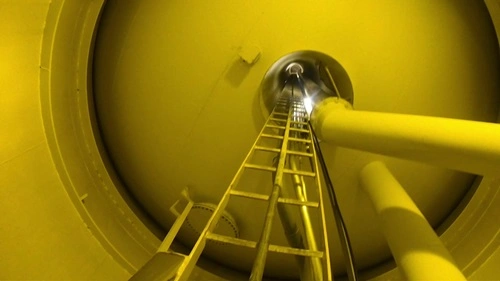Yes, it is illegal to climb a water tower without proper authorization. Water towers are considered critical infrastructure, and unauthorized access is typically classified as trespassing or, in some cases, a federal offense. Climbing a water tower can result in criminal charges, including trespassing, vandalism, or endangerment, depending on the specific circumstances and local laws.
Why Climbing a Water Tower Is Illegal
1. Trespassing Laws
- Most water towers are owned by municipalities, water utilities, or private companies. Unauthorized climbing is considered trespassing, which is illegal in all states.
- Trespassing penalties vary by jurisdiction but often include fines and potential jail time for repeat offenses.
2. Critical Infrastructure Protections
- Water towers are part of the public water supply system and are considered critical infrastructure. Tampering with or accessing them without permission can raise concerns about contamination, sabotage, or terrorism.
- Federal laws like the Patriot Act include provisions for protecting critical infrastructure, and unauthorized access could lead to federal charges in certain cases.
3. Safety Concerns
- Climbing a water tower poses significant safety risks. Falling from the tower or causing damage to its structure can endanger the climber and the surrounding community.
- Emergency response efforts to rescue climbers or repair damages can result in additional charges or liability.
Legal Consequences of Climbing a Water Tower
1. Trespassing Charges
- Trespassing is typically a misdemeanor but can be elevated to a felony if the act involves damage, theft, or poses a public safety risk.
- Fines for trespassing range from $100 to $5,000, depending on the severity and location.
2. Reckless Endangerment
- Climbing a water tower may result in charges of reckless endangerment, particularly if the act creates a risk to public safety or involves emergency responder intervention.
3. Vandalism or Criminal Mischief
- If damage occurs during the climb, such as broken locks, scratched surfaces, or graffiti, the climber may face vandalism charges.
4. Federal Prosecution
- If the act is perceived as a threat to public utilities, federal agencies like the Department of Homeland Security may become involved. Penalties for tampering with critical infrastructure can include steep fines and imprisonment.
High-Profile Incidents
1. Urban Exploration and Social Media Stunts
- Some individuals climb water towers for thrill-seeking or to create viral content for social media. These stunts often lead to arrests and public backlash.
- In 2019, a YouTuber faced trespassing charges after climbing a water tower in a small town, sparking debates about the risks and ethics of such activities.
2. Community Impact
- Unauthorized water tower climbs can lead to temporary shutdowns of water supplies for inspections or repairs, inconveniencing local residents and businesses.
How to Legally Climb a Water Tower
1. Obtain Permission
- In rare cases, municipalities or private owners may grant permission for legitimate purposes, such as inspections, maintenance, or media production.
2. Participate in Authorized Events
Some towns host public tours or events that include access to water towers, often under strict supervision.
3. Professional Involvement
Contractors, engineers, and utility workers may be authorized to climb water towers as part of their job responsibilities.
Safety and Ethical Considerations
1. Personal Safety
- Water towers are not designed for recreational climbing. Slippery surfaces, strong winds, and heights make them extremely dangerous for unauthorized access.
2. Community Respect
- Climbing a water tower without permission disrupts community resources and may lead to costly inspections or repairs.
Related FAQs
Q1. Can I climb a water tower if it’s abandoned?
Ans: No. Even abandoned water towers are typically private property, and climbing them without permission is trespassing.
Q2. Are there any legal water tower climbing opportunities?
Ans: Rarely, but some municipalities allow supervised climbs during events or tours. You must obtain explicit permission from the owner.
Q3. What are the penalties for climbing a water tower?
Ans: Penalties include trespassing charges, fines ranging from $100 to $5,000, and potential jail time. Additional charges like vandalism or reckless endangerment may apply.
Q4. Could climbing a water tower lead to federal charges?
Ans: Yes. If the act is perceived as a threat to critical infrastructure, it may result in federal charges under laws protecting public utilities.
Q5. Why are water towers considered critical infrastructure?
Ans: Water towers store and supply water for communities, making them essential for public health and safety. Unauthorized access can compromise their functionality and security.
Conclusion
Climbing a water tower without proper authorization is illegal, dangerous, and disruptive to communities. While some may see it as a harmless thrill, the legal and safety risks are significant. For those interested in exploring water towers, pursuing legal opportunities such as authorized tours or professional roles is the safest and most responsible option.

